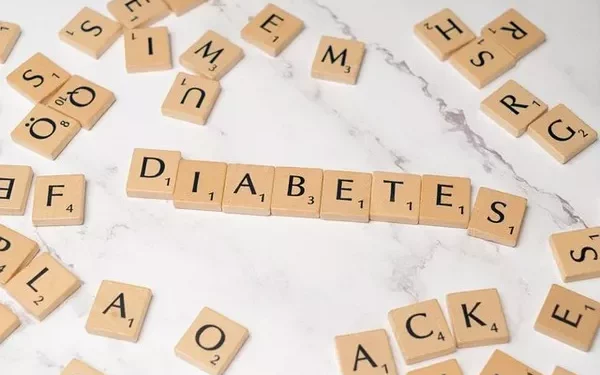Type 1 diabetes (T1D) is a chronic autoimmune condition characterized by the destruction of insulin-producing beta cells in the pancreas. While the hallmark feature of T1D is the dysregulation of blood glucose levels, its effects extend far beyond glycemic control. This article delves into the intricate web of physiological and psychological impacts of T1D, highlighting the comprehensive approach required for its management.
Physiological Impacts
Glucose Dysregulation:
The absence of insulin, the hormone responsible for glucose uptake by cells, leads to hyperglycemia. Prolonged hyperglycemia can result in macrovascular complications such as cardiovascular disease and microvascular complications like retinopathy, neuropathy, and nephropathy.
Metabolic Disturbances:
Insulin deficiency impairs carbohydrate, fat, and protein metabolism. Without insulin, cells are unable to absorb glucose, leading to increased breakdown of fats and proteins for energy, resulting in weight loss, ketosis, and muscle wasting.
Nutritional Imbalances:
Individuals with T1D often struggle to maintain consistent blood glucose levels, which can impact their dietary habits. The need for frequent monitoring and insulin administration can disrupt meal timing and portion control, potentially leading to nutritional deficiencies.
Hormonal Imbalance:
Insulin deficiency can disrupt the balance of other hormones involved in glucose regulation, such as glucagon, cortisol, and growth hormone. These imbalances contribute to hyperglycemia, exacerbating the metabolic consequences of T1D.
Immune Dysfunction:
T1D is an autoimmune condition characterized by the destruction of beta cells by the immune system. This dysregulation of the immune system not only affects insulin production but also increases the risk of other autoimmune disorders such as thyroiditis, celiac disease, and Addison’s disease.
Psychological Impacts
Emotional Distress:
The relentless demands of managing T1D can take a toll on emotional well-being. The constant vigilance required for monitoring blood glucose levels, calculating insulin doses, and managing potential complications can lead to feelings of anxiety, stress, and burnout.
Depression:
Studies have shown that individuals with T1D are at a higher risk of depression compared to the general population. The chronic nature of the condition, coupled with the fear of hypoglycemia, social stigma, and the burden of self-care, can contribute to feelings of sadness and hopelessness.
Diabetes Distress:
Diabetes distress encompasses the emotional burdens specific to living with diabetes, including feelings of frustration, guilt, and resentment. Concerns about the long-term complications of T1D, financial strain from the cost of medications and supplies, and the impact of the condition on relationships can all contribute to diabetes distress.
Eating Disorders:
Individuals with T1D are at an increased risk of developing eating disorders, such as diabulimia, characterized by the deliberate omission or reduction of insulin to induce weight loss. The complex interplay between disordered eating behaviors, insulin manipulation, and glycemic control poses significant challenges for both medical management and psychological intervention.
Social Isolation:
Managing T1D can be isolating, particularly for children and adolescents who may feel different from their peers due to dietary restrictions, insulin therapy, and the need for frequent blood glucose monitoring. Social stigma and misconceptions about diabetes can further exacerbate feelings of loneliness and alienation.
Interplay between Physiological and Psychological Impacts
Biopsychosocial Model:
The biopsychosocial model provides a framework for understanding the interconnection between biological, psychological, and social factors in health and illness. In the context of T1D, this model highlights the complex interactions between physiological processes (e.g., glucose dysregulation, hormonal imbalance) and psychological factors (e.g., emotional distress, depression) in shaping the overall experience of living with the condition.
Glycemic Variability and Mood:
Research has shown a bidirectional relationship between glycemic variability and mood disturbances in individuals with T1D. Fluctuations in blood glucose levels can impact mood stability, while emotional states such as stress and depression can influence glycemic control through hormonal and behavioral mechanisms.
Self-Management and Quality of Life:
Effective self-management of T1D is essential for maintaining glycemic control and minimizing the risk of complications. However, the burden of self-care can negatively impact quality of life, particularly when it interferes with daily activities, social interactions, and emotional well-being.
Family Dynamics and Support:
Family dynamics play a crucial role in the management of T1D, particularly in pediatric populations. Supportive family environments can facilitate adherence to treatment regimens, while family conflicts or dysfunction may hinder effective diabetes management and exacerbate psychological distress.
Psychosocial Interventions:
Multidisciplinary interventions that address both the physiological and psychological aspects of T1D are essential for comprehensive care. Psychosocial interventions, such as cognitive-behavioral therapy, mindfulness-based stress reduction, and family therapy, can help individuals and families cope with the emotional challenges of living with T1D and improve overall well-being.
See also:If You Have Type 1 Diabetes, What Should Do Now?
Conclusion
Type 1 diabetes is a complex condition with far-reaching physiological and psychological impacts. Effective management requires a holistic approach that addresses both the medical and psychosocial aspects of the disease. By recognizing the interconnectedness of physiological processes, emotional well-being, and social dynamics, healthcare professionals can provide more comprehensive care and support for individuals living with T1D. Through continued research, education, and advocacy, we can strive to improve outcomes and enhance the quality of life for those affected by this chronic condition.
Related topics:
What Happens in the Body to Cause Type 1 Diabetes?

























